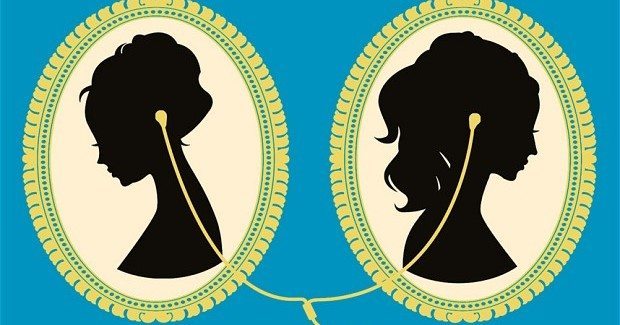Book Review: Sense & Sensibility by Joanna Trollope
The Austen Project has chosen six authors to rewrite Jane Austen’s beloved novels, aiming to introduce Austen to a different, perhaps younger, wave of readers. The first novel under The Austen Project, Sense & Sensibility by Joanna Trollope, has recently been released. I decided to buy a copy and see what I made of it. I approached the novel with a mixture of feelings; I was sceptical, however I was also interested in how it would read.
Well, where do I even begin? In an attempt to try to be somewhat fair, I will try to pick out a few positives. For a start, if Trollope manages to get younger readers to read Austen, then that can only be a good thing. Also, Trollope manages to successfully transport Austen’s novel into the 21st century by making subtle changes and additions to the storyline. Despite this, she faithfully sticks to the original story.
 However, I have to be honest. Trollope’s novel irritated me greatly for a variety of reasons. Now, I usually embrace adaptations of works of literature with open arms, but Trollope’s Sense & Sensibility was no adaptation. Rather, Trollope took Austen’s treasured novel and rewrote it, scene for scene, the only change made being the era. And this angers me. Jane Austen is one of the most widely read authors in English literature due to her witty, ironic style, her portrayal of society and her original plot lines among many other reasons. Therefore, I feel that her novels did not need to be ‘rewritten’. Ironically, I find the original novel far easier to read than Trollope’s as it flows far smoother. The anonymous narrator guides you through the flawless prose, and Austen’s carefully inserted opinions always keep you alert and interested. However, a few pages into Trollope’s novel, and I was forcing myself to continue. I get bored easily, and the dull writing and lifeless characters certainly did not help.
However, I have to be honest. Trollope’s novel irritated me greatly for a variety of reasons. Now, I usually embrace adaptations of works of literature with open arms, but Trollope’s Sense & Sensibility was no adaptation. Rather, Trollope took Austen’s treasured novel and rewrote it, scene for scene, the only change made being the era. And this angers me. Jane Austen is one of the most widely read authors in English literature due to her witty, ironic style, her portrayal of society and her original plot lines among many other reasons. Therefore, I feel that her novels did not need to be ‘rewritten’. Ironically, I find the original novel far easier to read than Trollope’s as it flows far smoother. The anonymous narrator guides you through the flawless prose, and Austen’s carefully inserted opinions always keep you alert and interested. However, a few pages into Trollope’s novel, and I was forcing myself to continue. I get bored easily, and the dull writing and lifeless characters certainly did not help.
Austen is viewed as an author of romantic fiction. However, if you have read her novels, you will know that her novels are not greatly romantic by today’s standards. Let’s have a look at Austen’s Sense & Sensibility. We are at the stage where we think that Elinor and Edward can never be together as he is to marry someone else. All of a sudden, he turns up to Elinor’s cottage. The reader, along with Elinor herself, is given the news that Edward is not to be married – he is finally free. And from this moment, the dialogue stops, and the narrator tells us what happened next;
“This only need be said – that when they all sat down to table at four o’clock, about three hours after his arrival, he had secured his lady, engaged her mother’s consent, and was not only in the rapturous profession of the lover, but in reality of reason and truth, one of the happiest of men.”
But Trollope decides to add a big dollop of soppiness to the story. And I hate soppiness.
“Edward captured Elinor’s left hand and held it out to see the ring glittering by the light of the nearest candle… He looked back down at her, and bent so that he could kiss her on the mouth.”
Change the name ‘Elinor’ to ‘Bella’ and that could be a snippet from Twilight! Maybe I am just being cynical, but I felt myself rolling my eyes as I read the scene above. Trollope has turned Sense & Sensibility into a typical teenage chick-lit novel.
Finally, Trollope’s take on certain characters made me squirm. I appreciate that some character changes were essential due to the fact that the era has been changed, however I found myself getting annoyed with characters that I usually loved. In Trollope’s novel, Elinor seemed very unpleasant at times, especially towards Lucy: “I don’t know why you’re so happy, because they don’t know about you and Ed…” This was very unlike the original character, who despite feeling hurt by the engagement between Lucy and Edward, ensures that she remains polite towards Lucy.
Marianne seemed like nothing more than an over-dramatic teen. In the 18th century, it was not the norm, of course, for a couple to spend time getting to know each other before they got married. Thus, by the standards of Austen’s era, Marianne and Willoughby had been acquainted for a long time before he left. However, Trollope does not change this factor when modernising it. By our current standards, a few weeks are nothing. For this reason, Marianne seems pathetic and immature pining after ‘Wills’ when he leaves, despite the fact that they have only known each other for a few weeks.
The Austen Project aims to rewrite Austen in order to encourage more people to read her works. However I feel that the strength of Austen’s prose itself is enough to do this. For those of you who have never read Austen, I encourage you to pick up an Austen novel today. But stay clear of Joanna Trollope.

Comments